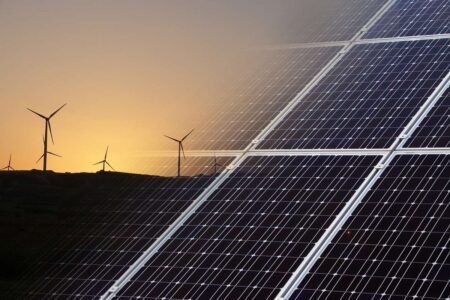The European Commission has today proposed rules on wholesale energy markets to prevent market manipulation and insider trading. The Regulation seeks to ensure market transparency by obliging energy traders to respect clear market rules. Wholesale markets, where gas and electricity is traded between companies producing energy and traders, are key to the prices consumers finally pay.
Advertisement
Who are the traders in wholesale energy markets?
Beyond energy producing companies, a wide range of actors including large energy users, traders, investment banks and funds sell and buy gas and electricity. Energy suppliers will then sell it to end-users.
Where is gas and electricity sold?
Two possibilities exist:
A. Energy can be traded at exchanges, which are organized marketplaces for energy commodities. Around 15 such energy exchanges exist in the EU. Examples: Nord Pool Spot, Nasdaq OMX commodities, APX-ENDEX.
B. Energy is traded between companies without going through an exchange (over the counter deals, OTC). This can be done directly or via brokers.
The overall majority of energy in the EU is traded OTC: In 2009, 75 percent of electricity was traded OTC, only 25 percent via power exchanges.
Why is there a need for EU regulation?
A. Successive European energy liberalization packages have led to a steady increase in the volumes traded in power. Between 2000 and 2009 overall volumes of traded electricity (exchanges and OTC taken together) increased from 3500 TWh to 10000 TWh. Before 2000, liquid wholesale markets only existed in the UK and in the Nordic countries around Nord Pool.
B. Cross border trade: Energy is often traded between market participants in two or more different countries. In Germany for example, less than 6% of derivative electricity transactions for delivery in the country takes place through the European Energy Exchange in Germany. Set against this, 94% of German power trades are made through intermediaries based outside the country.
What do you want to achieve through the regulation?
Prices established on wholesale markets serve as a benchmark for retail prices for household consumers and industrial users. It is for this reason that the regulation aims to have market transparency and to prevent insider trading and market abuse which can lead to higher prices.
Do prices on wholesale markets influence prices for household users?
Yes. Wholesale prices are a key factor that influences suppliers’ pricing. Depending on the purchasing strategy of a supplier and the level of competition on the market, price changes on wholesale markets will sooner or later impact every consumer’s energy bill.
Are there cases of price manipulation in the EU?
As we have no EU data at the moment, this is difficult to say. Since market abuses are currently not effectively prohibited on wholesale energy markets, oversight in the EU is fragmented with rules only defined at Member State level and restricted to apply on few market places. As individual Member States do not have access to all the data on cross-border transactions, it is difficult to fully understand what is going on in these markets and effectively detect abuse.
In the USA, several cases of market abuse have led to higher energy prices, costing the consumer billions of US-Dollar. One example: Amaranth Advisors LLC, a hedge fund has accumulated massive natural gas holdings in the form of derivatives between 2006-2010, pushing up prices and making huge profits. It is assumed that an Amaranth-style market manipulation would inflate gas and electricity bills of European businesses and industrial users by some Euro 1 billion.
What are the measures proposed?
* Prohibition to use inside information or manipulate energy markets
* Establishment of a European market monitoring function within the Agency for the Cooperation of Energy Regulators (ACER) to effectively detect market abuse
* Effective arrangements to collect data for market monitoring purposes
* Set up of a framework to share such data between competent national authorities
* Laying down rules for data protection and operational reliability
* ACER to ensure that the rules are coherently enforced across the Union
* Requirement for Member States to adopt penalties which are proportionate and dissuasive
Why isn’t existing financial legislation sufficient to control wholesale energy markets?
A. Financial regulation, in particular the Market Abuse Directive (2003/6/EC) and the Markets in Financial Instruments Directive (MiFID), is designed for financial markets. They apply to financial instruments traded on a regulated market. This means that only energy derivatives traded at energy exchanges are covered by these Directives. For electricity, this is 16% of the total volumes traded.
B. Tailor made rules are also needed to take into account energy specific market abuses, such as withholding of energy production from the market to increase prices. Electricity cannot be stored on an industrial scale. It must be produced in the moment it is consumed. This means that market prices are highly sensitive to the availability of generation capacities. To a lesser extent, the same concerns apply to gas markets.
What are spot markets? What derivatives?
In contrast to contracts to actually buy and sell power or gas immediately (spot), energy derivatives are contracts where the delivery of the commodity is foreseen in the future. The main aim of derivatives is to hedge price risks.
How many traders are there in Europe?
There are a few hundred companies trading energy in Europe.
How many transactions are there per day on average?
It is estimated that there are between 6000 and 10 000 transaction every day.
Which markets and products are concerned?
The measures will apply to wholesale electricity and gas contracts including contracts for the transportation of these commodities. They will not apply to supplies to final customers.
When will the new rules be in force?
The Regulation should enter into force by 2012 after its adoption by the Council and European Parliament.
Gas & Electricity – Traded energy markets
Source: European Commission






